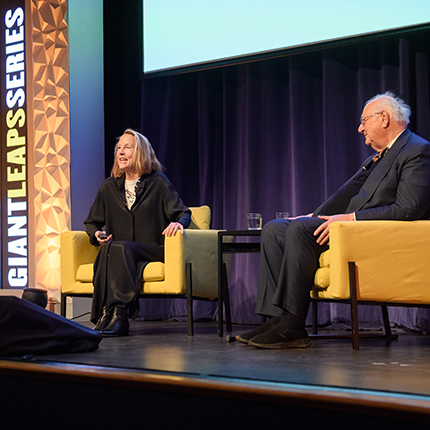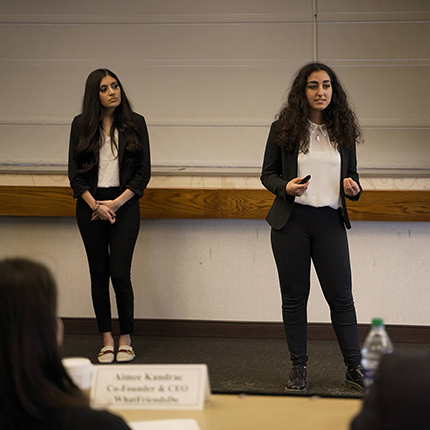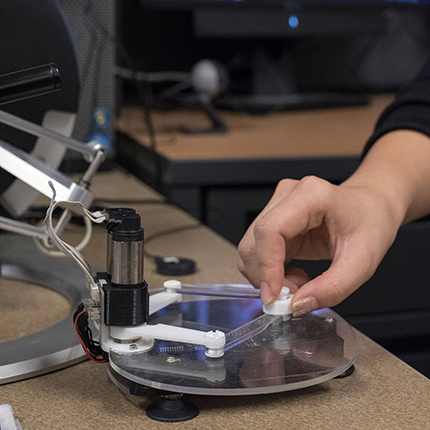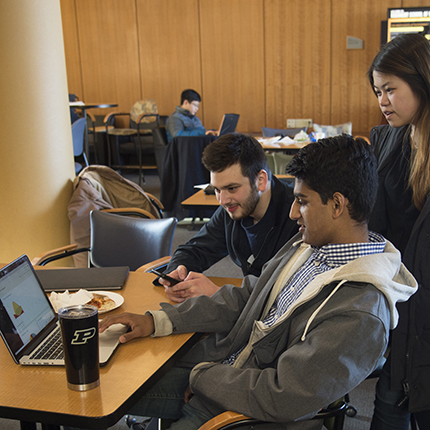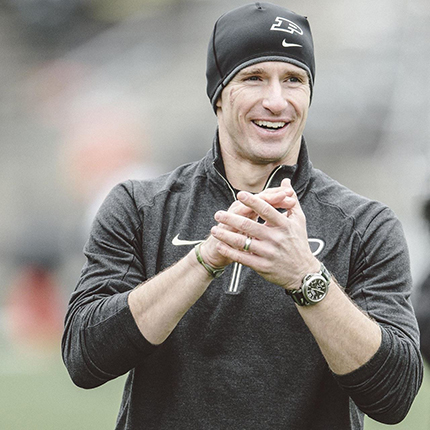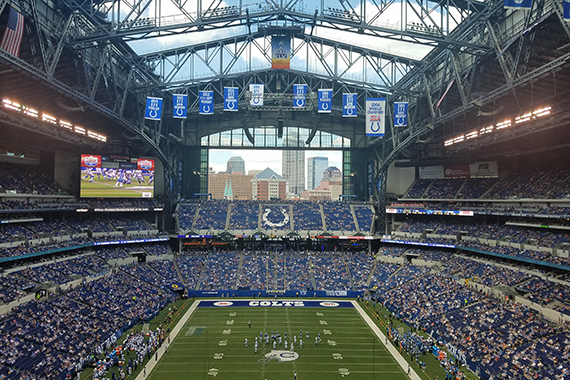 Krannert alumnus Alexander Romano, a business intelligence manager for the Indianapolis Colts, was part of a team for the organization that used data analytics to reprice seating packages in Lucas Oil Stadium. (Stock photo)
Krannert alumnus Alexander Romano, a business intelligence manager for the Indianapolis Colts, was part of a team for the organization that used data analytics to reprice seating packages in Lucas Oil Stadium. (Stock photo)
Enriching Data
Krannert alumni take their analytics skills to the pros
Although using data to get the best performance from a team’s roster of multimillionaire athletes may represent the glamorous side of business analytics, the top organizations in the professional leagues, particularly the NFL, also recognize the richness of data in providing the optimal fan experience.
After all, the bulk of the league’s profits and the revenue stream of each franchise are driven by broadcast rights, ticket sales, merchandising and licensing rights. According to Investopedia, the NFL earned a reported $14.2 billion in revenue in 2017, up $900 million from 2016. The league spends nearly half the revenue it earns on players, but also shares profits among its teams, which are individually owned and subject to taxes.
That’s where Krannert alumni like Alexander Romano (BS ’13, Management & Finance) and Olivia Stasiuk (BS ’16, Management) are breaking into the professional ranks.
Romano, a business intelligence manager for the Indianapolis Colts, credits Krannert for opening the door to internships with financial firms, the Tampa Bay Buccaneers and the Indiana Pacers. “Having the opportunity to work for some amazing organizations and earning a management degree was the perfect combination for success post-graduation,” he says.
Romano and his colleagues bring a distinct Boilermaker vibe to their jobs. “Our department of three Purdue alumni focuses on all things business analytics for the Indianapolis Colts organization,” he says. “We are responsible for the data architecture and strategy, analytics and reporting on all business metrics, data modeling, and anything we can do to help the organization make better business decisions.”
A lifelong fan, Romano has already seen the field grow exponentially since joining the Colts in 2016.
“Business analytics is becoming one of the leading focuses of the sports industry,” he says. “If you look back 20 years, the San Francisco 49ers had a single price for all seats in their stadium throughout each of their two preseason and eight regular season games. Now there are hundreds if not thousands of price code combinations that are dynamically changed throughout the year.”
Among the off-season projects Romano and his team of Boilermakers worked on for the Colts was repricing every seat in Lucas Oil Stadium based on all ticketing transactions that occur. “There are so many different variables and possibilities with 63,000 seats that having the right modeling and data to back up the decision is critical,” he says. “Ensuring we are pricing appropriately among our inventory and different products is key to being successful on the business side.”
And the work doesn’t end when the game is over.
“Our understanding of how we interact and build relationships with our customers is also data driven,” Romano says. “Consumers — especially fans — want personalized offers and communication, so you need to capture the right information.
“Throughout my two years with the Colts, I have learned so much more about pricing, sales, marketing and finance than I anticipated. When you are first starting out it is rare to know exactly what you want to do, and business analytics gives you the platform to taste many different parts of a business.”
Olivia Stasiuk played soccer for most of her life and was prepared to play at the collegiate level until three concussions her senior year of high school pointed her in a different direction. She decided business would be the best way to stay connected to sports if she wasn't’t a player.
After starting at Purdue, Stasiuk quickly learned that business and sports could easily be paired for a successful career. While on campus she was an intern in the Purdue Athletics Department, started the Purdue Sports Management Club and connected with mentors and professional colleagues in the area of sports management.
She pulled from her experiences in her academic major, the Certificate in Entrepreneurship and Innovation program and the Purdue Athletics Department to complete internships with the Nashville Predators, New York Red Bulls and Charlotte Hornets assisting with database management and analytics.
After graduating in December 2016, Stasiuk started a job with the Dallas Cowboys as a customer-relationship management analyst. She was promoted to her current position as consumer insights strategist last August.
“I am responsible for collecting and analyzing consumer facing data, including elements such as demographics, geographic analysis, and spending habits,” Stasiuk says. “Just like any other business or industry, we use analytics to better understand our customers in order to develop well defined marketing and sales strategies.
“We are consistently using analytics to develop insightful marketing strategies as well as sales campaigns. In a world where consumers expect customization and personalization, we must be able to deliver that to current and prospective customers.”
While technical skills are essential to her job, Stasiuk says her management background helps her stand out among those focused only on the numbers.
“Analytics is defined as ‘the systematic computational analysis of data or statistics.’ This is a very granular and detailed field, but an analyst also must understand the big picture,” she says. “Krannert allows students to understand the larger operation while also learning how creatively and analytically solve problems.”

